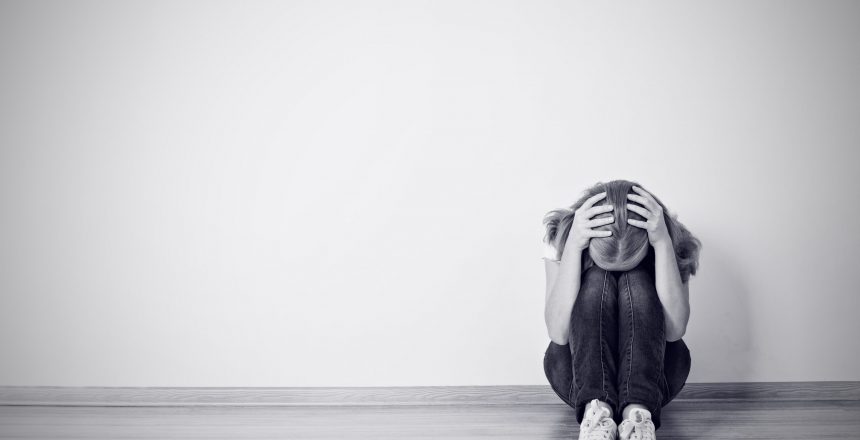If you or someone close to you consumes alcohol regularly, you might ask, “Can alcohol cause depression” or “How does alcohol cause depression.” Current studies indicate that over sixty percent of people with alcohol addiction also have depressive disorders. There are many causes of alcoholism and depression, which often overlap. If you need help with dual diagnosis treatment of alcohol and depression, Liberty House is here.
Liberty House Recovery is the best luxury drug and alcohol rehab center in Michigan. Contact us today to learn more about our Michigan drug treatment center.
Can Alcohol Cause Depression?
Alcohol consumption changes the way your brain works. Many people turn to alcohol to alleviate stress, reduce symptoms of depression, or help with social anxiety. Those same people might ask, “Does alcohol cause depression?”
Scientific studies have found that people struggling with major depressive disorder have changes to the white matter and gray matter in their brains. They also have structural changes to brain parts, like the hippocampus and amygdala.
Does Alcohol Cause Depression?
Can drinking cause depression? Long-term, yes, it can. People struggling with alcoholism are more likely to develop secondary mental health disorders, including depression and anxiety, compared to people who don’t have alcoholism.
How Does Alcohol Cause Depression?
Short-term drinking interferes with the communication pathways in your brain, making it difficult to stay focused, maintain your balance, or speak properly when intoxicated.
Long-term drinking can also change the size and structure of white and gray matter, the hippocampus, and the amygdala.
Can Drinking Cause Depression or Make it Worse?
Many people with depression mistakenly believe that alcohol can help relieve their symptoms. But alcohol does not offer legitimate, permanent relief from symptoms. Instead, it temporarily masks the symptoms so clients don’t feel them as strongly.
However, once that same person stops drinking, the depression symptoms emerge once more. So in some cases, drinking can make existing depression worse as individuals don’t get the treatment they need and self-medicate instead.
There are several other reasons you might feel depressed (or more depressed) after drinking that lead you to ask, “Can alcohol cause depression.”
For example:
- Some people wonder, “Does alcohol cause depression” because they feel depressed when they drink. In these cases, what you feel is likely already there just beneath the surface. It’s not unusual to feel depressed while drinking because alcohol can enhance your emotions. It’s equally plausible that you might feel depressed after drinking because how alcohol changes your brain chemistry and reduces your mood.
- Some people wonder, “Can alcohol cause depression” because they feel depressed in and around alcohol consumption, especially binge drinking. Alcohol consumption can help you fall asleep faster, but the amount of sugar and the effects on the brain often disrupt REM cycles, so you have a fateful night’s sleep, where you typically wake up multiple times and might find it difficult to go back to sleep. Disruptions to your sleep quality can leave you feeling depressed.
- Some people ask, “Can drinking cause depression” because they have developed prolonged feelings of depression after heavy, long-term drinking. In this case, alcohol might be used as an unhealthy coping mechanism to deal with unwanted emotions or self-medicate for pre-existing depressive disorders. In any case, regular alcohol consumption can lead to dependence, and dependence can quickly result in addiction. Alcohol addiction or a gray area drinking can create unhealthy cycles that are often intermixed with depression. It’s important to know the signs of alcoholism so that you know when it is time to get help.
Liberty House Can Help
If you are struggling with alcoholism or depression, Liberty House provides dual diagnosis services. Our treatment center specializes in inpatient dual diagnosis services, where clients receive state-of-the-art amenities and a team of dedicated healthcare professionals who are leaders in their fields.
When you reach out to our team for help, we will facilitate an initial intake process, asking questions about your mental and physical health. This information is used to curate a personalized treatment program for you, complete with individual and group therapy sessions, experiential treatment, and any necessary detox services. For alcoholism, we specialize in medication-assisted treatment. As a licensed facility, we can give you FDA-approved medications to help alleviate symptoms during your initial detox and as you recover with your residential program.
Don’t wait to get help. Call Liberty House at 1-866-686-0319 to learn more about alcohol and depression.


